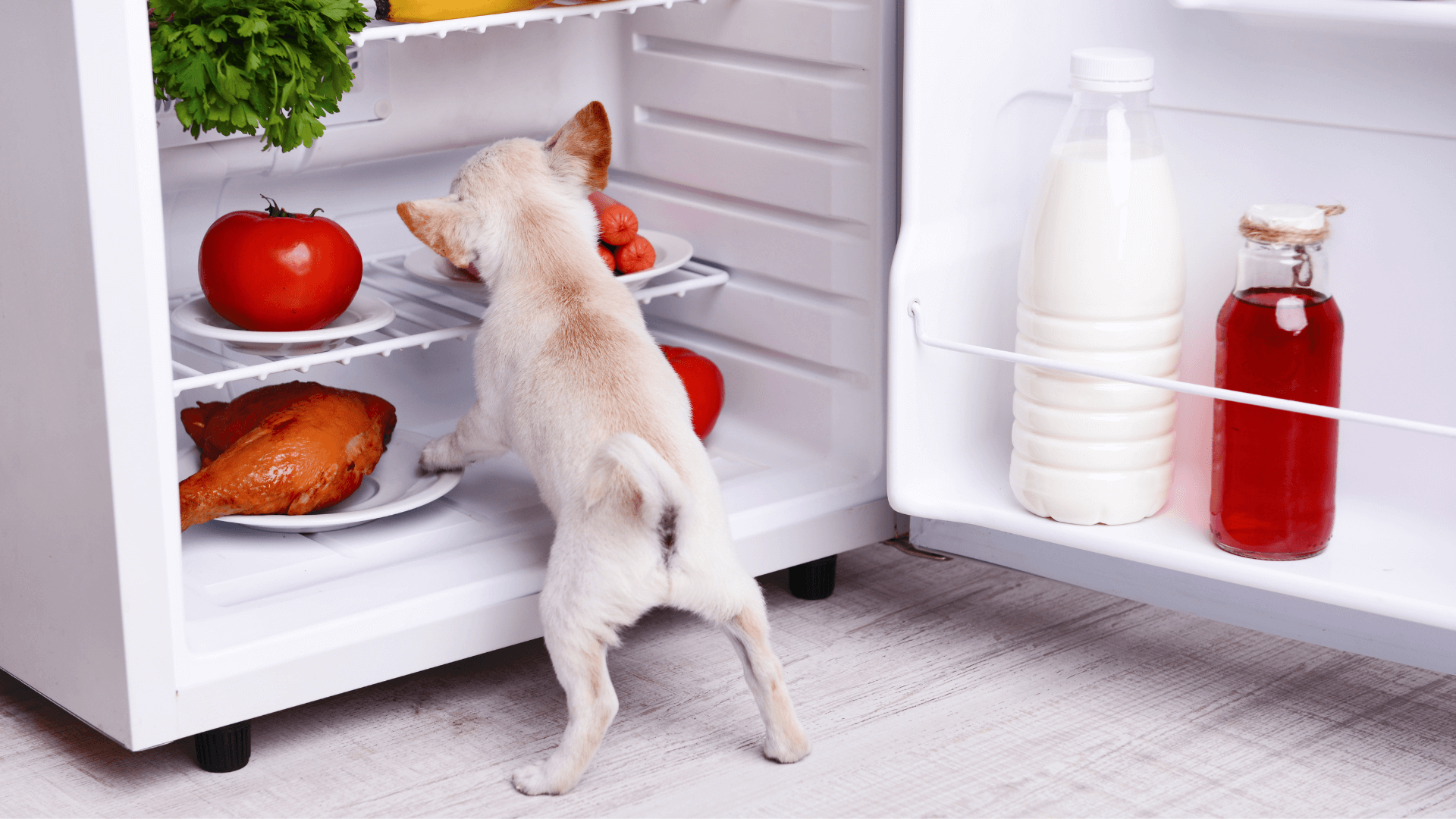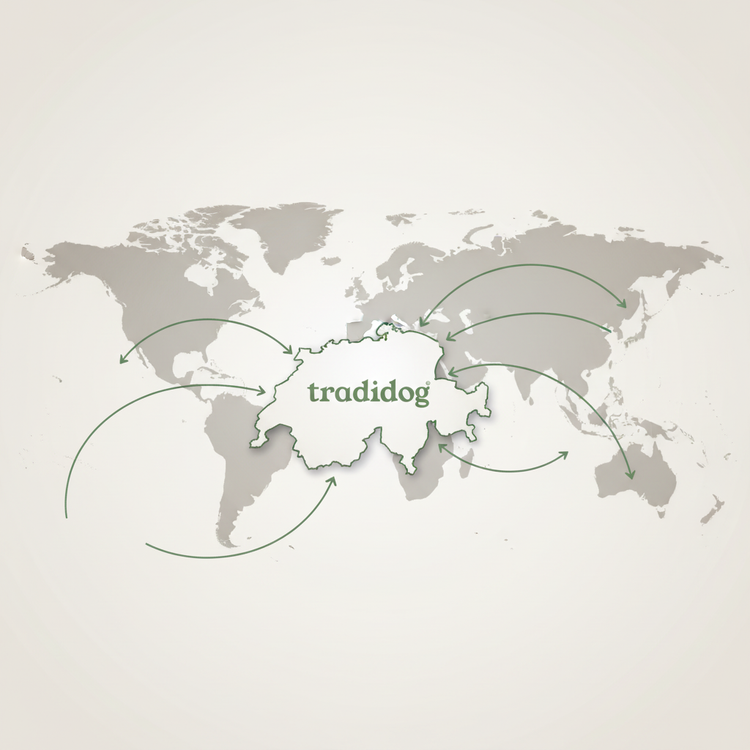
What can dogs (or can't) eat? Part 1
Diet plays a central role in your dog's health and well-being. While some foods are completely safe for dogs, there are others that pose health risks or can even be dangerous. It is important to know which foods are off-limits for your loyal companion to avoid health problems. In this blog post, we will look at different foods and clarify which ones are safe for your dog and which ones are better avoided.
Can my dog eat blueberries ?
Blueberries are actually healthy and safe for dogs. They are rich in antioxidants, vitamins and fiber that can contribute to overall health. Blueberries can boost immunity and aid digestion. However, it is important to feed them in small amounts only, as excessive amounts could lead to digestive problems. Make sure you wash the berries thoroughly and offer them in small portions.
Can my dog eat bananas?
Yes, bananas are safe for dogs and can be a nutritious treat. They contain vitamins such as vitamin B6 and C, as well as fiber, which can aid digestion. Bananas are also a good source of energy. However, due to the high sugar content, bananas should only be given in small amounts to avoid possible weight gain or blood sugar fluctuations.
Can my dog eat onions ?
No, onions are dangerous for dogs and should be strictly avoided. Onions contain compounds such as thiosulfate that are harmful to dogs and can lead to a condition called hemolytic anemia. This is a condition in which the red blood cells are destroyed, which can lead to fatigue, weakness and other health problems. It is important to also avoid other onion plants such as garlic, leeks and chives.
Can my dog eat peppers ?
Peppers are generally safe for dogs and can even be healthy because they are rich in vitamins and antioxidants. Red peppers in particular contain a lot of vitamin A and C. However, peppers should be given in moderation and in small, easily digestible pieces, as the skin and seeds can be difficult to digest. Make sure that the peppers are washed well and given in small quantities.
Can my dog eat walnuts ?
Walnuts are not recommended for dogs and should be avoided. They contain a lot of fat, which can be difficult to digest and can cause stomach upset or pancreatitis in dogs. In addition, walnuts can contain mold spores that produce toxins that are dangerous for dogs. It is better to switch to safer treats that are specifically designed for dogs.
Can my dog eat chocolate ?
No, chocolate is extremely dangerous for dogs and should never be offered to them. It contains theobromine and caffeine, which are toxic to dogs and can lead to serious health problems such as vomiting, diarrhea, tremors and even life-threatening conditions. The type of chocolate and the amount will determine the severity of the poisoning, but it is always best to completely eliminate chocolate from your dog's diet.
Can my dog eat spinach ?
Spinach can be safe for dogs, but only in small amounts. Spinach contains oxalic acid, which in large amounts can interfere with calcium absorption and cause kidney problems. If you introduce spinach into your dog's diet, do so in moderate portions and make sure it is well cooked and served in small pieces to make it easier to digest.
Can my dog eat grapes?
No, grapes and raisins are extremely dangerous for dogs and can cause acute kidney failure. Even in small amounts, grapes can cause serious health problems in dogs, including vomiting, diarrhea, lethargy, and even fatal kidney damage. Keep grapes and raisins out of your dog's reach and avoid feeding these foods.
Can my dog eat avocado ?
Avocados should be avoided because they contain persin, a substance that can be toxic to dogs. While the amount of persin in the fruit itself is small, in large quantities it can cause vomiting and diarrhea. In addition, the high fat content of avocados can cause stomach upset and pancreatitis in dogs.
Can my dog eat things that contain caffeine ?
Caffeine is toxic to dogs and should never be offered to them. It is found in coffee, tea, cola and many energy drinks. Caffeine can cause tremors, irregular heart rhythm, increased heart rate, vomiting and even serious health complications in dogs. Make sure to keep products containing caffeine out of your dog's reach.
Can my dog eat raw meat ?
Raw meat can pose risks, especially if it contains bacteria such as salmonella or E. coli. The risk of parasites is also higher with raw meat. If you want to give your dog raw meat, it is important to do so under strict hygienic conditions and with high-quality products prepared specifically for dogs. However, many pet owners and experts recommend using cooked or frozen meat products to minimize potential health risks.
Conclusion
Proper nutrition is crucial to your dog's health. While some foods can be safe and even healthy for your four-legged friend, there are others that are potentially dangerous and should be avoided. It is important to do your research and always consult a veterinarian if you are unsure. This way you can ensure that your dog only receives the best and safest foods.
Share

